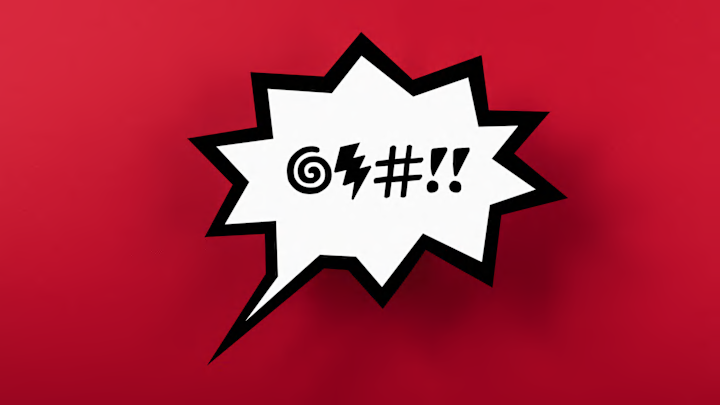There are two types of people in this world: Those who abhor potty mouths, and those who have turned the use of four-letter words into an art form. If you lean toward the latter side, you’re probably not afraid to admit it—and thanks to a little help from science, we know why.
As Medical Daily reports, a study conducted by a team of international researchers from Stanford, University of Cambridge, Maastricht University, and Hong Kong University of Science and Technology suggests that people who can easily let loose with a string of obscenities are likely more honest as well.
For the first part of the study, the team conducted interviews with 276 subjects, recruited on Amazon Mechanical Turk, to get to the bottom of both their swearing habits—namely, their favorite curse words and how often they use them—and just how honest they are by asking them questions like “Have you ever cheated at a game?” and “Have you ever blamed someone for doing something you knew was really your fault?” to determine their trustworthiness. (If someone answered all of the questions in the way that society deems is socially acceptable, researchers could essentially determine that the person was lying, because no one is all good all the time.)
Next, the team analyzed the status updates of nearly 74,000 Facebook users, looking for linguistic indicators of deception, such as the use of fewer third-person pronouns and more negative words, as determined by a 2003 report published in Personality and Social Psychology Bulletin [PDF].
“The consistent findings across the studies suggest that the positive relation between profanity and honesty is robust and that the relationship found at the individual level indeed translates to the society level,” the study concluded [PDF] .
While swearing may sound uncouth to some, the researchers see it more as an honest form of expression—not anger or malice—and determined that the more curse words that come out of a person’s mouth, the more truthful he or she is likely to be, as swearing itself is a form of candid talk.
“You might think if someone is swearing a lot, this is a negative social behavior seen as a bad thing to do, so if someone swears they are probably a bad person as well,” study co-author David Stillwell told the Daily Mail. “On the other hand, they are not filtering their language so they are probably also not putting their stories about what is going on through similar filters which might turn them into untruths. That is what we seemed to land on in this study, that people who use the language that comes to mind first are less likely to be playing games with the truth.”
It’s not the first time researchers have delved into dirty talk: A 2015 study published in Language Sciences [PDF] determined that people who swear a lot may possess a higher verbal abilities, while a 2009 study showed that swearing can actually provide pain relief. F*** yeah!
Now that you know there’s nothing wrong with cursing, brush up on these old-fashioned swear words.
A version of this story ran in 2017; it has been updated for 2023.
Are you a logophile? Do you want to learn unusual words and old-timey slang to make conversation more interesting, or discover fascinating tidbits about the origins of everyday phrases? Then get our new book, The Curious Compendium of Wonderful Words: A Miscellany of Obscure Terms, Bizarre Phrases, & Surprising Etymologies, out now! You can pick up your copy on Amazon, Barnes & Noble, Books-A-Million, or Bookshop.org.
